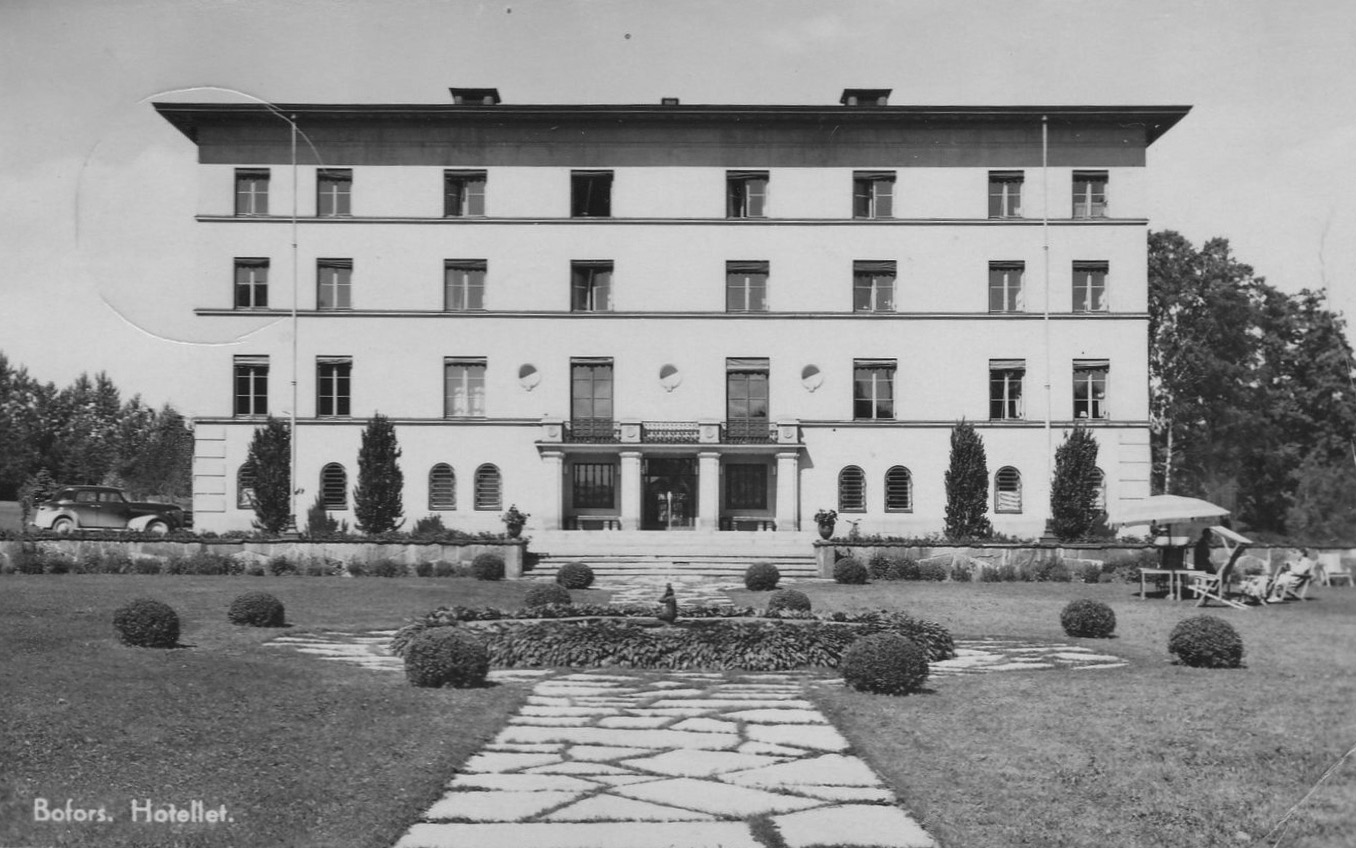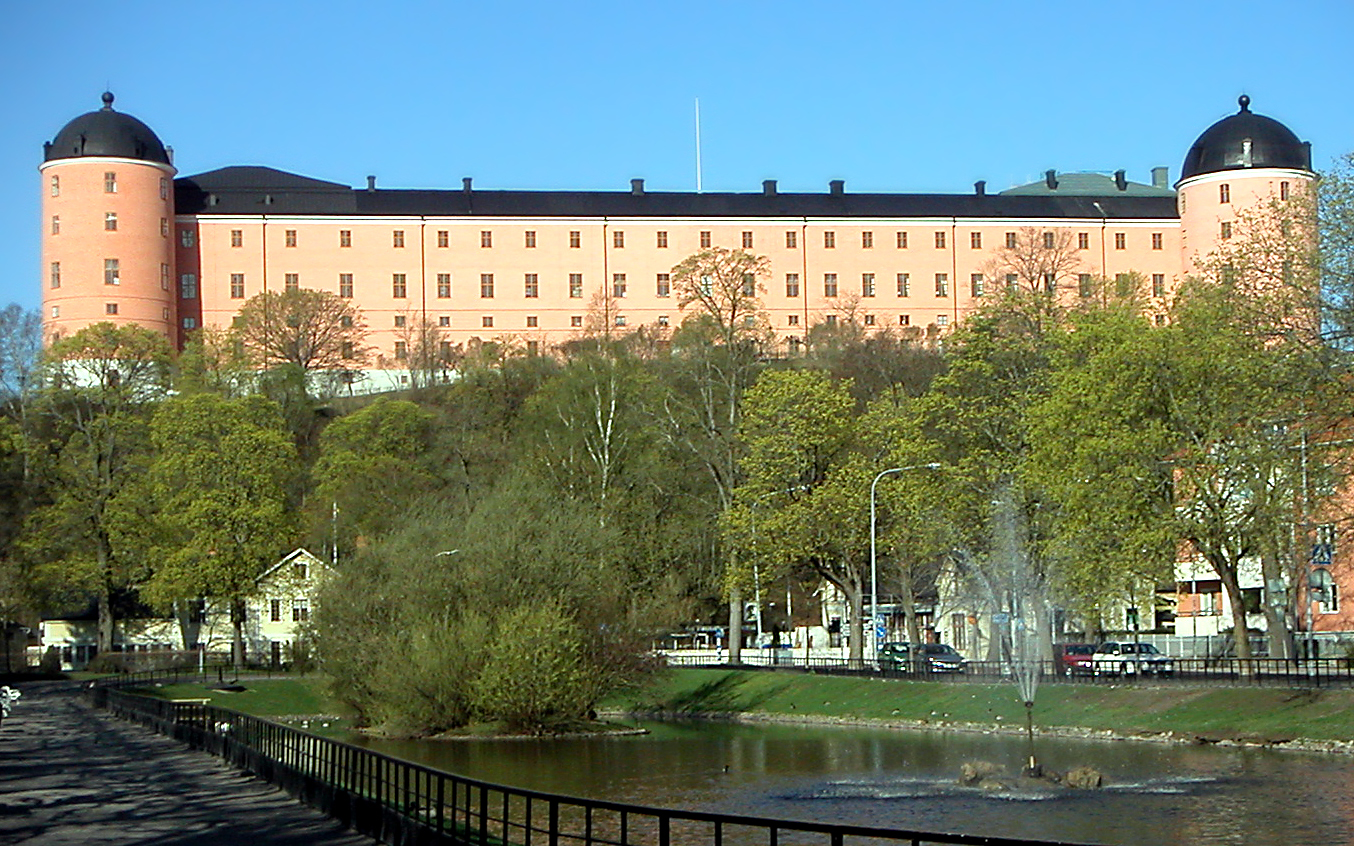|
Emanuel Af Geijerstam
Emanuel af Geijerstam (; 10 October 1730 – 24 September 1788) was a Swedish ironmaster and politician. Early life and work Born in Uddeholm in Värmland, Sweden on October 10, 1730, to Bengt Gustaf Geijer and Lovisa Sophia Tranæa, Geijer married Sara Helena Piscator in 1753 and had children. He was admitted as a student at Uppsala University in 1749. Geijerstam served as a director at the Uddeholm Works, a privately held company, from 1753 to 1767, which later developed into the multinational steel producer Uddeholms AB. In 1770, he obtained the Bofors Works from his brother Johan Eberhard Geijer. Geijerstam lived in Alkvettern Manor located in Bjurtjärn socken. He received the Royal Order of Vasa and was ennobled in 1773 at Loka Brunn by Gustav III Gustav III (29 March 1792), also called ''Gustavus III'', was King of Sweden from 1771 until his assassination in 1792. He was the eldest son of King Adolf Frederick and Queen Louisa Ulrika of Sweden. Gustav was a ... [...More Info...] [...Related Items...] OR: [Wikipedia] [Google] [Baidu] |
Uddeholm
Uddeholm is a locality situated in Hagfors Municipality, Värmland County, Sweden Sweden, formally the Kingdom of Sweden, is a Nordic countries, Nordic country located on the Scandinavian Peninsula in Northern Europe. It borders Norway to the west and north, and Finland to the east. At , Sweden is the largest Nordic count ... with 667 inhabitants in 2010. The company Uddeholms AB, located in Hagfors is named after the locality. References {{Authority control Populated places in Hagfors Municipality ... [...More Info...] [...Related Items...] OR: [Wikipedia] [Google] [Baidu] |
Gustav III
Gustav III (29 March 1792), also called ''Gustavus III'', was King of Sweden from 1771 until his assassination in 1792. He was the eldest son of King Adolf Frederick and Queen Louisa Ulrika of Sweden. Gustav was a vocal opponent of what he saw as the abuse of political privileges seized by the Swedish nobility, nobility since the death of King Charles XII of Sweden, Charles XII in the Great Northern War. Seizing power from the government in a coup d'état, called the Revolution of 1772, Swedish Revolution, in 1772, that ended the Age of Liberty, he initiated a campaign to restore a measure of royal autocracy. This was completed by the Union and Security Act of 1789, which swept away most of the powers exercised by the Swedish Riksdag of the Estates, Riksdag of the estates during the Age of Liberty, but at the same time it opened up the government for all citizens, thereby breaking the privileges of the nobility. A believer in enlightened absolutism, Gustav spent considerable pu ... [...More Info...] [...Related Items...] OR: [Wikipedia] [Google] [Baidu] |
18th-century Swedish Politicians
The 18th century lasted from 1 January 1701 (represented by the Roman numerals MDCCI) to 31 December 1800 (MDCCC). During the 18th century, elements of Enlightenment thinking culminated in the Atlantic Revolutions. Revolutions began to challenge the legitimacy of monarchical and aristocratic power structures. The Industrial Revolution began mid-century, leading to radical changes in human society and the environment. The European colonization of the Americas and other parts of the world intensified and associated mass migrations of people grew in size as part of the Age of Sail. During the century, slave trading expanded across the shores of the Atlantic Ocean, while declining in Russia and China. Western historians have occasionally defined the 18th century otherwise for the purposes of their work. For example, the "short" 18th century may be defined as 1715–1789, denoting the period of time between the death of Louis XIV of France and the start of the French Revolution ... [...More Info...] [...Related Items...] OR: [Wikipedia] [Google] [Baidu] |
18th-century Swedish Businesspeople
The 18th century lasted from 1 January 1701 (represented by the Roman numerals MDCCI) to 31 December 1800 (MDCCC). During the 18th century, elements of Enlightenment thinking culminated in the Atlantic Revolutions. Revolutions began to challenge the legitimacy of monarchical and aristocratic power structures. The Industrial Revolution began mid-century, leading to radical changes in human society and the environment. The European colonization of the Americas and other parts of the world intensified and associated mass migrations of people grew in size as part of the Age of Sail. During the century, slave trading expanded across the shores of the Atlantic Ocean, while declining in Russia and China. Western historians have occasionally defined the 18th century otherwise for the purposes of their work. For example, the "short" 18th century may be defined as 1715–1789, denoting the period of time between the death of Louis XIV of France and the start of the French Revoluti ... [...More Info...] [...Related Items...] OR: [Wikipedia] [Google] [Baidu] |
Bofors People
AB Bofors ( , , ) is a former Swedish arms manufacturer which today is part of the British arms manufacturer BAE Systems. The name has been associated with the iron industry and artillery manufacturing for more than 350 years. History Located in Karlskoga neighborhood of Bofors, Sweden, the company originates from the hammer mill "Boofors", which was founded as a royal state-owned company in 1646 when P. L. Hosman was permitted to erect a forge at the site.' Sigrid Ekehielm, also known as Boås-Beata, who lived from the 1640s to 1700, at one point owned it."Sigrid Ekehielm", https://skbl.se/en/article/SigridEkehielm, Svenskt kvinnobiografiskt lexikon (SKBL) iographical Dictionary of Swedish Women(article by Sofia Danielsson, translated by Alexia Grosjean), retrieved 2023-09-3. The Bofors Works was acquired by Johan Eberhard Geijer (1733–1796) in 1762. It was then acquired by the latter's brother, Emanuel af Geijerstam. The modern corporate structure was created in 1873 w ... [...More Info...] [...Related Items...] OR: [Wikipedia] [Google] [Baidu] |
People From Hagfors Municipality
The term "the people" refers to the public or common mass of people of a polity. As such it is a concept of human rights law, international law as well as constitutional law, particularly used for claims of popular sovereignty. In contrast, a people is any plurality of persons considered as a whole. Used in politics and law, the term "a people" refers to the collective or community of an ethnic group or nation. Concepts Legal Chapter One, Article One of the Charter of the United Nations states that "peoples" have the right to self-determination. Though the mere status as peoples and the right to self-determination, as for example in the case of Indigenous peoples (''peoples'', as in all groups of indigenous people, not merely all indigenous persons as in ''indigenous people''), does not automatically provide for independent sovereignty and therefore secession. Indeed, judge Ivor Jennings identified the inherent problems in the right of "peoples" to self-determination, as i ... [...More Info...] [...Related Items...] OR: [Wikipedia] [Google] [Baidu] |
Uppsala University Alumni
Uppsala ( ; ; archaically spelled ''Upsala'') is the capital of Uppsala County and the fourth-largest city in Sweden, after Stockholm, Gothenburg, and Malmö. It had 177,074 inhabitants in 2019. Located north of the capital Stockholm, it is also the seat of Uppsala Municipality. Since 1164, Uppsala has been the ecclesiastical centre of Sweden, being the seat of the Archbishop of the Church of Sweden. Uppsala is home to Scandinavia's largest cathedral – Uppsala Cathedral, which was the frequent site of the coronation of the Swedish monarch until the late 19th century. Uppsala Castle, built by King Gustav Vasa, served as one of the royal residences of the Swedish monarchs, and was expanded several times over its history, making Uppsala the secondary capital of Sweden during its greatest extent. Today, it serves as the residence of the Governor of Uppsala County. Founded in 1477, Uppsala University is the oldest centre of higher education in Scandinavia. Among the many ... [...More Info...] [...Related Items...] OR: [Wikipedia] [Google] [Baidu] |
Swedish People Of Austrian Descent
Swedish or ' may refer to: Anything from or related to Sweden, a country in Northern Europe. Or, specifically: * Swedish language, a North Germanic language spoken primarily in Sweden and Finland ** Swedish alphabet, the official alphabet used by the Swedish language * Swedish people or Swedes, persons with a Swedish ancestral or ethnic identity ** A national or citizen of Sweden, see demographics of Sweden ** Culture of Sweden * Swedish cuisine See also * * Swedish Church (other) * Swedish Institute (other) * Swedish invasion (other) * Swedish Open (other) Swedish Open is a tennis tournament. Swedish Open may also refer to: * Swedish Open (badminton) * Swedish Open (table tennis) * Swedish Open (squash) * Swedish Open (darts) {{disambiguation ... {{disambig Language and nationality disambiguation pages ... [...More Info...] [...Related Items...] OR: [Wikipedia] [Google] [Baidu] |
Geijer Family
Geijer () is a Swedish family. According to the tradition, it immigrated from Austria in the early 17th century. The family includes the noble A noble is a member of the nobility. Noble may also refer to: Places Antarctica * Noble Glacier, King George Island * Noble Nunatak, Marie Byrd Land * Noble Peak, Wiencke Island * Noble Rocks, Graham Land Australia * Noble Island, Gr ... branches af Geijerstam and von Geijer. The ''af Geijerstam'' branch is descended from Emanuel af Geijerstam (1730–1788), who was ennobled in 1773 and introduced at the House of Nobility in the following year with the number 2010. The ''von Geijer'' branch is descended from lieutenant-colonel Carl Emanuel Geijer (1777–1865), who was ennobled in 1817 and introduced at the House of Nobility in 1818 with the number 2256.Geijer, Lennart: ''Släkten Geijer jämte dottersläkterna von Geijer och af Geijerstam'' (1953) References {{reflist Swedish families Swedish people of Austrian descent ... [...More Info...] [...Related Items...] OR: [Wikipedia] [Google] [Baidu] |
Swedish Ironmasters
Swedish or ' may refer to: Anything from or related to Sweden, a country in Northern Europe. Or, specifically: * Swedish language, a North Germanic language spoken primarily in Sweden and Finland ** Swedish alphabet, the official alphabet used by the Swedish language * Swedish people or Swedes, persons with a Swedish ancestral or ethnic identity ** A national or citizen of Sweden, see demographics of Sweden ** Culture of Sweden * Swedish cuisine See also * * Swedish Church (other) * Swedish Institute (other) * Swedish invasion (other) * Swedish Open (other) Swedish Open is a tennis tournament. Swedish Open may also refer to: * Swedish Open (badminton) * Swedish Open (table tennis) * Swedish Open (squash) * Swedish Open (darts) {{disambiguation ... {{disambig Language and nationality disambiguation pages ... [...More Info...] [...Related Items...] OR: [Wikipedia] [Google] [Baidu] |
1788 Deaths
Events January–March * January 1 – The first edition of ''The Times'', previously ''The Daily Universal Register'', is published in London. * January 2 – Georgia ratifies the United States Constitution, and becomes the fourth U.S. state under the new government. * January 9 – Connecticut ratifies the United States Constitution, and becomes the fifth U.S. state. * January 18 – The leading ship (armed tender HMS ''Supply'') in Captain Arthur Phillip's First Fleet arrives at Botany Bay, to colonise Australia. * January 22 – The Congress of the Confederation, effectively a caretaker government until the United States Constitution can be ratified by at least nine of the 13 states, elects Cyrus Griffin as its last president.''Harper's Encyclopaedia of United States History from 458 A. D. to 1909'', ed. by Benson John Lossing and, Woodrow Wilson (Harper & Brothers, 1910) p167 * January 24 – The La Perouse expedition in the ''Astrolabe'' and '' Boussole'' arri ... [...More Info...] [...Related Items...] OR: [Wikipedia] [Google] [Baidu] |




